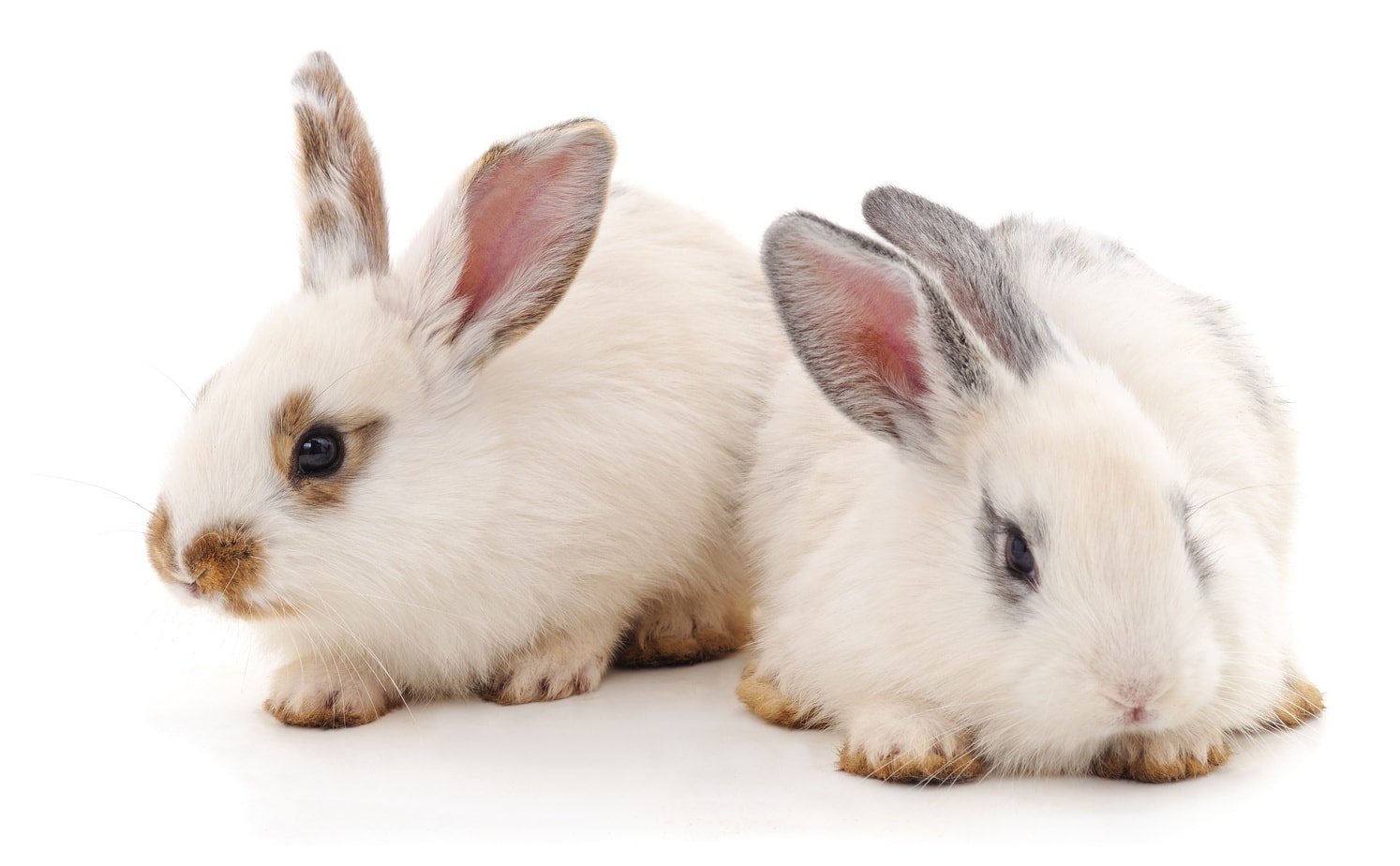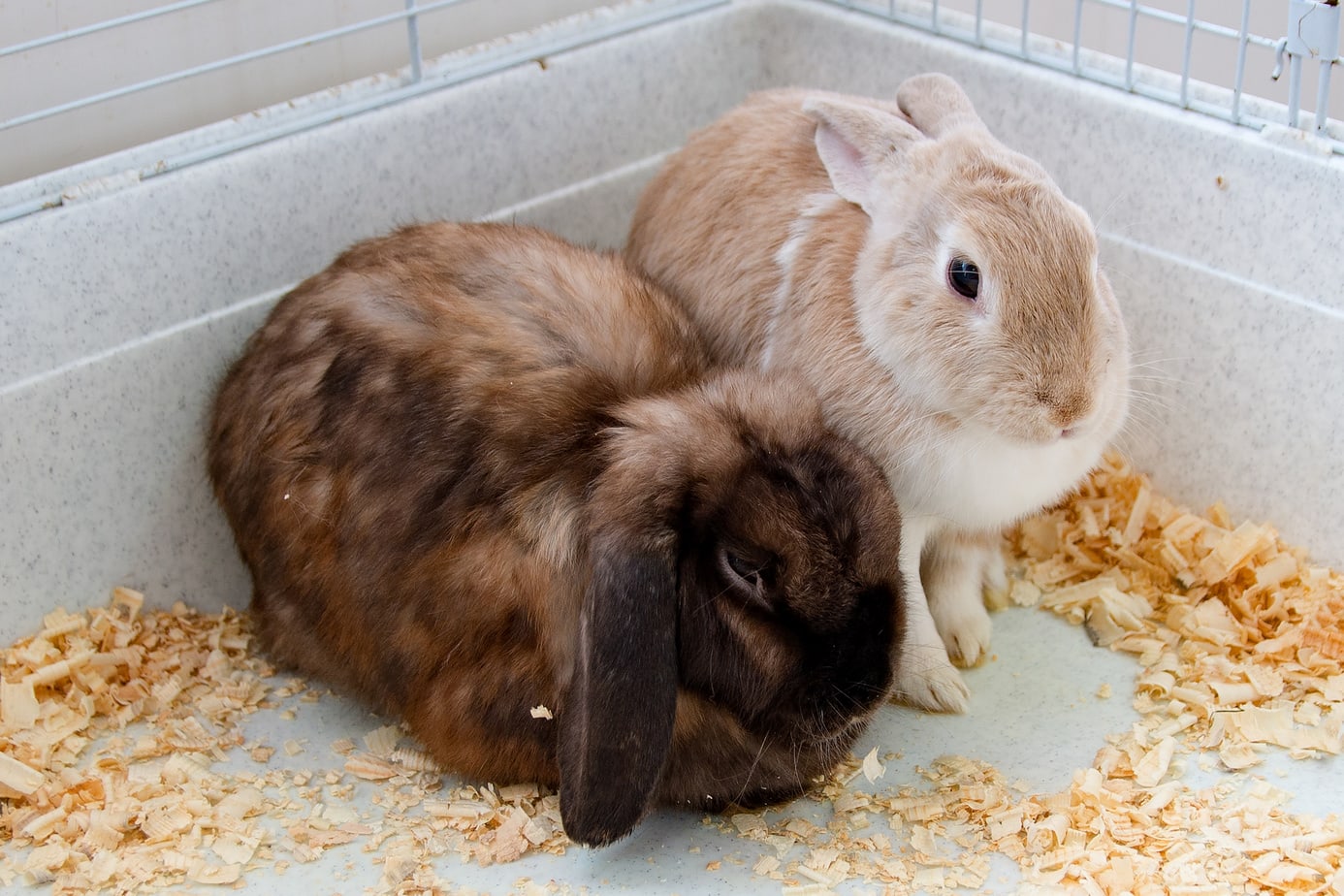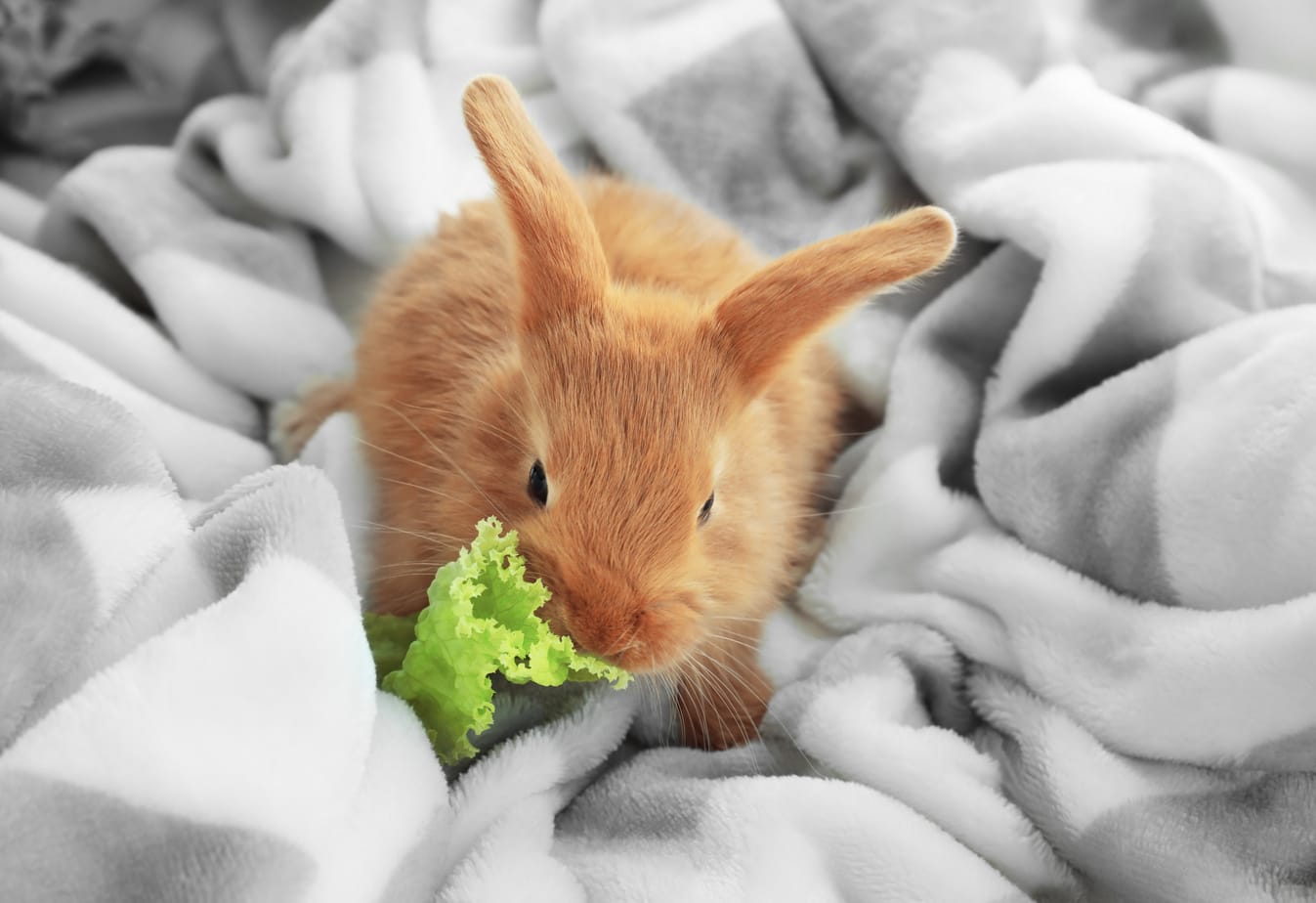
Becoming a rabbit owner isn’t as typical as a dog or cat owner, so you may be wondering just what it entails–and if it’s a good idea to own a rabbit in the first place. They are unique animals with certain needs, and it’s best to determine if you can meet those needs before you buy a rabbit.
Rabbits require much care and attention from their owners. They are not low-maintenance pets, so they need constant dedication to their health and environment to keep them happy. This may make it difficult for some to fulfill a rabbit’s needed responsibilities.
Consider these common characteristics in rabbits before you decide to bring one into your life.
Rabbits Are Social Animals
Rabbits don’t do well alone and in an isolated space. They’re extremely social animals, and their happiness levels are higher when they live as a pair or a trio.
It’s best to buy a pair that has already bonded, so you will need to ensure that you have:
- The space for two or more rabbits in your home
- The funds to properly care for multiple rabbits
- The time to spend and familiarize yourself with each rabbit
If you buy a buddy for your rabbit to bond with down the road, you will need to have the effort and patience to ensure that you properly introduce the rabbits to each other. This process can take up to a few weeks to complete, and it may sometimes be unsuccessful if the rabbits’ personalities clash or they are not spayed/neutered. Spaying or neutering has a bit effect on their behavior, find out what to expect in my article all about how a rabbit’s personality changes after neutering.
While rabbits may get along with cats (or even dogs) and find companionship with them, it’s beneficial to make sure they have their own bunny friend. A lonely rabbit becomes an unhappy rabbit, which can lead it to lash out or withdraw from you. Be sure to ask yourself if you can take care of its emotional needs by having another rabbit to bond with.
Rabbits Have High Energy Levels
Don’t expect your rabbits to be a chill, background kind of pet that’s content to sit in their pen all day. They need enough space to play, as well as toys, other bunnies, and an owner to play with.
Because rabbits require space at least five times their size, don’t keep them cooped up in a small cage or rabbit hutch. They need a fairly spacious pen if you are planning to keep them in there at all hours.
If you don’t have a good place for a larger pen, then consider rabbit-proofing your house for your bunnies to roam freely. To proof your house for your bunnies, try covering all wires, protecting baseboards, blocking off areas with gates, and keeping potentially toxic houseplants out of reach.
Just like a dog or cat, if rabbits don’t have an outlet to direct their energy, they will get into things they shouldn’t and develop unwanted habits. Providing them with toys, attention, and space will keep your rabbits preoccupied–and happy.
Think of the kind of place you’ll be homing your rabbits, what you can provide so they can stretch their legs, and if you have enough time to offer them the play they need.
Rabbits Need Clean Enclosures

False: Rabbits are dirty and stink
Fact: Rabbits religiously clean themselves and like their spaces clean
You can and should train your rabbits to use a litter box much like you would a cat. Rabbits like to have a place to go to the bathroom, so a litter box will help maintain a nice, non-messy enclosure for them.
The rabbits’ space may only start to smell if you don’t clean or change the litter box daily, so you will have to dedicate time to maintaining its freshness. Luckily there are some simple tricks for keeping your rabbit’s cage clean that can save you a lot of headaches. See my article How to Keep Rabbits’ Cage Clean: 5 Tips That Work to see what they are and how to do them.
Your rabbits may not care much about keeping an unsoiled enclosure if they’re not spayed or neutered. Male–and occasionally female–rabbits will spray their territory to mark it, as well as other rabbits or their owner. Getting them spayed or neutered as soon as possible will reduce any messes driven by their hormones, as well as the accompanying odor.
Rabbits also do better with keeping themselves clean and using the litter box when they’ve matured. Much like little kids, young rabbits don’t have the attention span to use a designated bathroom. If you purchase a young rabbit as a pet, you should take the time to train it to know where the litter box is. You should also be prepared to clean up its inevitable messes.
And lastly, don’t fill your rabbits’ litter box with regular cat litter or wood shavings, which are detrimental to their health. Rabbits need pellet litter to line their litter box, and because they like to eat hay while they use the bathroom, place hay on top of the pellets to encourage good bathroom habits. To get help setting up your littlerbox properly for your rabbit see my guide How to Set up a Rabbit Litter Box in 10 Steps here.
Rabbits Do Best Indoors
Although rabbits in the wild live their lives outdoors, domestic rabbits should be kept indoors for their health and safety.
The “out of sight, out of mind” mentality, unfortunately, applies to rabbits that are confined to outdoor hutches. All too often, they don’t have the care they require as pets if they’re isolated outside. Rabbits need daily monitoring, which can be done best when they live indoors.
Rabbits relegated to the outdoors are not only vulnerable to extreme temperatures and parasites that may sicken or kill them, but they are also more exposed to predators. Your pet rabbits rely on you to keep them safe and healthy, which means providing them with adequate indoor space.
As tempting as it may be to put your pet rabbits outside, they’re not the kind of animals to leave unattended for long periods of time without any interaction or a secure place to roam. You need to think of them as indoor pets if you consider purchasing one or two, and if you can accommodate your home to them.
Rabbits Have Delicate Bodies

Rabbits can become sick or die from multiple factors, so you need to be responsible and informed when it comes to taking care of them. You should also find a good, rabbit-informed veterinarian you can trust to treat your bunnies.
High Temperatures
Rabbits don’t handle heat well because they cannot vent out their body temperature as other animals can.
You will need to provide them with a cool space and keep an eye on them during hotter days that may warm your house. This also means that you will need to keep their water source cool, provide airflow, and wet their paws and fur with cool water.
Diet
Health problems can arise in your rabbits when you’re unsure of what foods are compatible with their digestive systems. And unlike we’re led to believe, carrots aren’t actually the best vegetables to feed rabbits.
Your rabbits’ primary source of food should be fresh hay, which is a main source of fiber and wears down a rabbit’s continuously growing teeth. This means that you should check if you or your family members have hay allergy issues before you decide to buy pet rabbits.
DID YOU KNOW?
Many people assume rabbits need to eat pellets, but it’s not true! To learn more about why this is, see my page titled Here’s Why Rabbits Don’t Need Pellets!
When it comes to vegetables, rabbits enjoy basil, bok choy, clover, dandelion leaves, romaine or dark leaf lettuce, parsley, and watercress. Avoid iceberg lettuce or cabbage. Instead of feeding your rabbits carrots or broccoli, try feeding them the vegetable leaves instead. Be sure that your veggies are always washed before you give them to your rabbits.
Be sure that your rabbits have access to freshwater. You should change it frequently and make sure it’s cool in case your rabbit feels hot. Freshwater helps regulate their internal temperature, and it keeps the digestive tract from being blocked.
Only give your rabbits treats occasionally. Store-bought treats are often high in fat and sugar, so stick to thoroughly washed fruits like strawberries, bananas, and seedless apples.
Stress
Rabbits can have a heart attack just from a bad spook. They’re naturally fearful animals, so their environment needs to be calm and safe for them to thrive. A loud house with unfriendly pets or grabby children won’t bode well for your rabbits’ health.
Cancer
Female rabbits commonly develop uterine cancer, which is why it’s imperative to spay them before any tumors develop and grow to the point where it becomes untreatable.
Rabbits Live Long Lives
Your rabbits aren’t going to be short-term pets if you care for them well. They normally live seven to ten years, but they can also live into their teens. Rabbits have longevity similar to a dog’s, so when you think of getting one, you should take their lifespan into account and if you can provide for them that long.
Rabbits are often bought on a whim, especially around holidays like Easter. But before you decide, you’ll need to evaluate your dedication to their needs to give them the long life they deserve.
If you’re sure that you have the means, time, and space to care for rabbits, then expect a furry friend whom you can love for a long time.
Other Things You Should Know
- Checklist: What You Need to Buy For a New Pet Rabbit – This is probably the most helpful list of items I can possibly give to someone new to rabbits and who’s getting their first one as a pet. This will help you make sure you aren’t wasting money on things you don’t need, don’t work well, or won’t make your life easier. These things will!
- The 6 Easiest Rabbit Breeds to Take Care Of – Not all rabbit breeds are created equal. Some are far easier to care for than others. This article will give you the names of the rabbit breeds that are the absolute easiest to care for.
